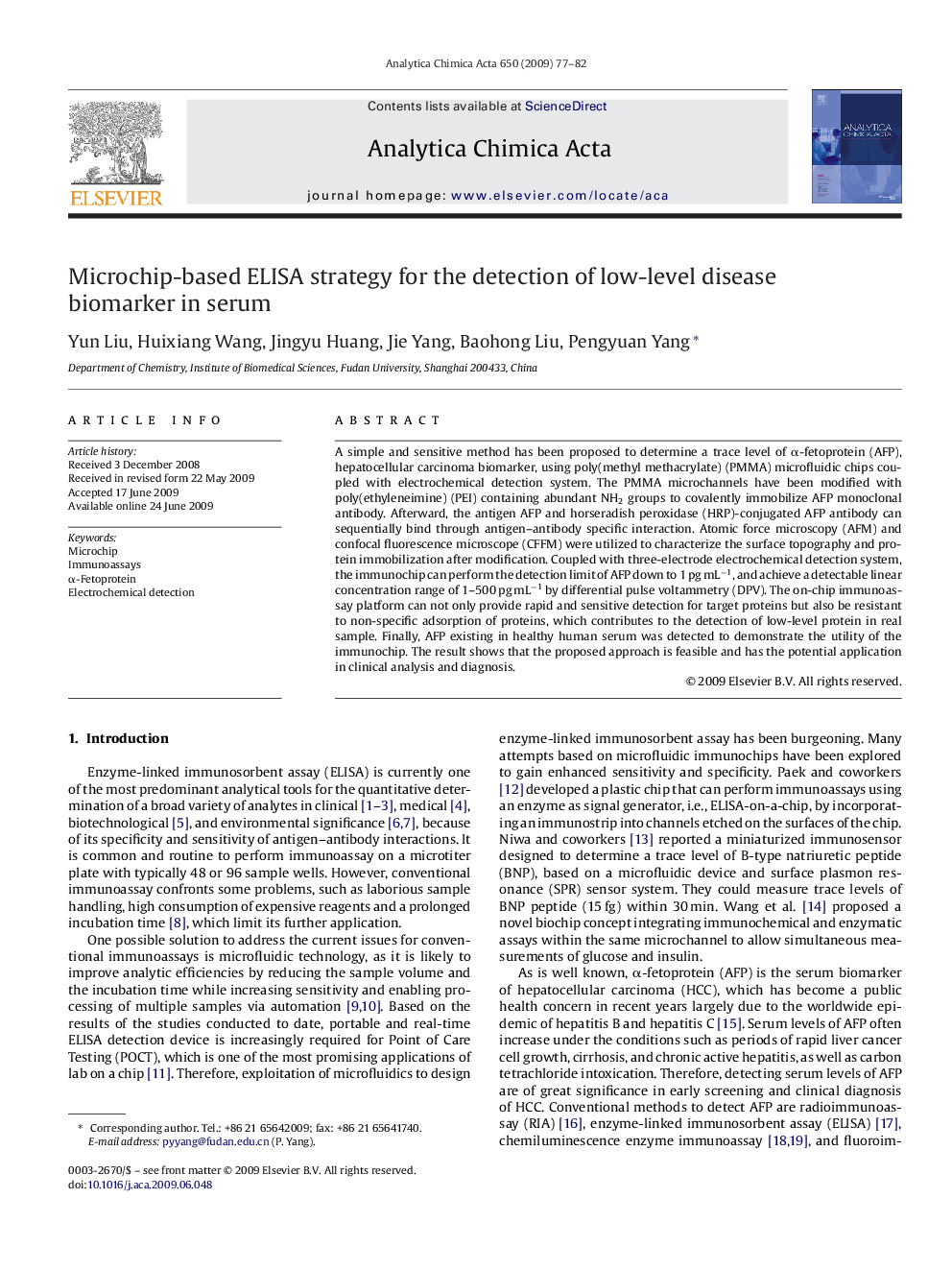| Article ID | Journal | Published Year | Pages | File Type |
|---|---|---|---|---|
| 1168410 | Analytica Chimica Acta | 2009 | 6 Pages |
A simple and sensitive method has been proposed to determine a trace level of α-fetoprotein (AFP), hepatocellular carcinoma biomarker, using poly(methyl methacrylate) (PMMA) microfluidic chips coupled with electrochemical detection system. The PMMA microchannels have been modified with poly(ethyleneimine) (PEI) containing abundant NH2 groups to covalently immobilize AFP monoclonal antibody. Afterward, the antigen AFP and horseradish peroxidase (HRP)-conjugated AFP antibody can sequentially bind through antigen–antibody specific interaction. Atomic force microscopy (AFM) and confocal fluorescence microscope (CFFM) were utilized to characterize the surface topography and protein immobilization after modification. Coupled with three-electrode electrochemical detection system, the immunochip can perform the detection limit of AFP down to 1 pg mL−1, and achieve a detectable linear concentration range of 1–500 pg mL−1 by differential pulse voltammetry (DPV). The on-chip immunoassay platform can not only provide rapid and sensitive detection for target proteins but also be resistant to non-specific adsorption of proteins, which contributes to the detection of low-level protein in real sample. Finally, AFP existing in healthy human serum was detected to demonstrate the utility of the immunochip. The result shows that the proposed approach is feasible and has the potential application in clinical analysis and diagnosis.
